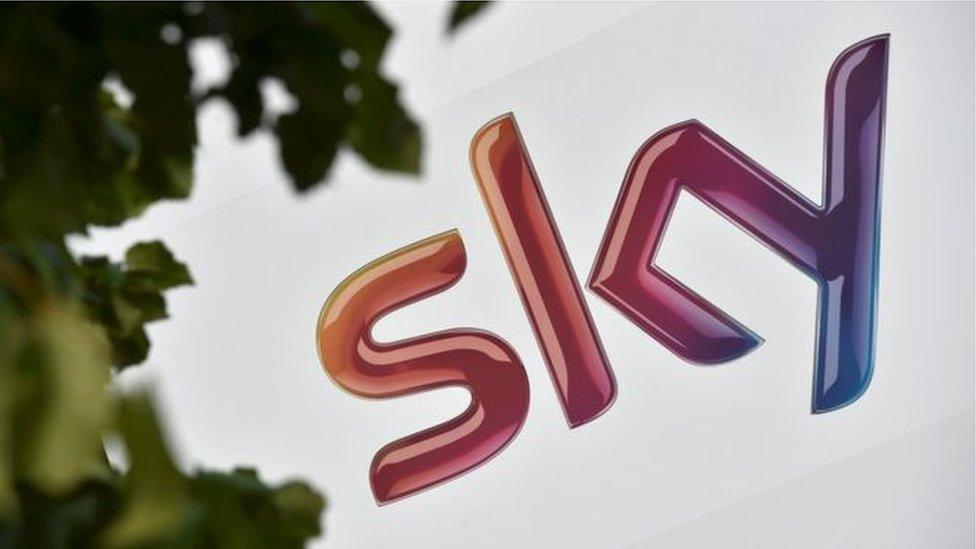What are the issues in Fox's Sky deal?
- Published
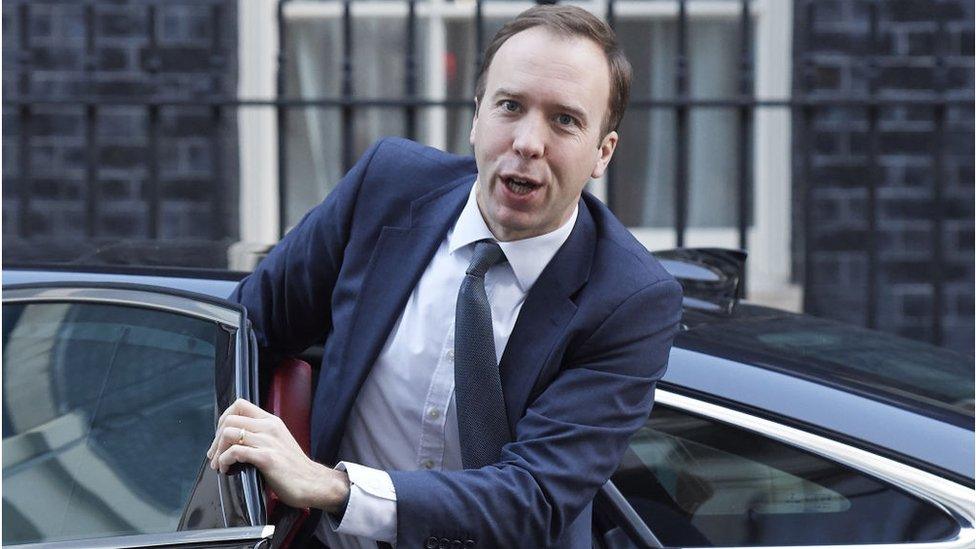
New Culture Secretary Matt Hancock will decide whether or not the deal happens
Fox's proposed acquisition of Sky is not in the public interest, the Competition and Markets Authority (CMA) has provisionally found.
The CMA cited "media plurality concerns" as a key reason for its decision.
The competition regulator is concerned that if the deal went through, the Murdoch Family Trust (MFT)'s control across all media platforms in the UK would give it too much influence over public opinion and the political agenda.
Communications watchdog Ofcom raised similar concerns in June 2017.
Sky and Fox first agreed the deal in December 2016 and the European Commission said in April that it was happy for the takeover to proceed.
However, the then Culture Secretary, Karen Bradley, referred the bid to the CMA, and they revealed their provisional findings on Tuesday.
Why is the deal controversial?
There are concerns about Rupert Murdoch controlling 21st Century Fox and Sky, while also owning the Times, the Sunday Times and the Sun newspapers.
Opponents say this will give him too much power in the UK media.
Fox has also been hit by sexual harassment scandals at its flagship Fox News channel in the US. Some of the victims have given evidence to regulator Ofcom.
However, the CMA says in its provisional ruling that, on the issue of broadcasting standards, these issues at Fox News did not call into question the company's commitment to upholding standards in Britain.
Will Disney take control of Sky News?

The CMA must decide whether it feels that Disney should gain control over Sky News
In December, Walt Disney agreed to snap up the bulk of 21st Century Fox's business for $52.4bn (£39bn), including Fox's film and television studios and its 39% stake in Sky.
Should the acquisition be completed successfully, Disney is likely to assume full ownership of Sky, including Sky News, which would lessen the Murdoch family's influence over British media providers.
The deal would expand Disney's offerings, adding the FX and National Geographic cable channels, as well as Fox's regional sports network in the US.
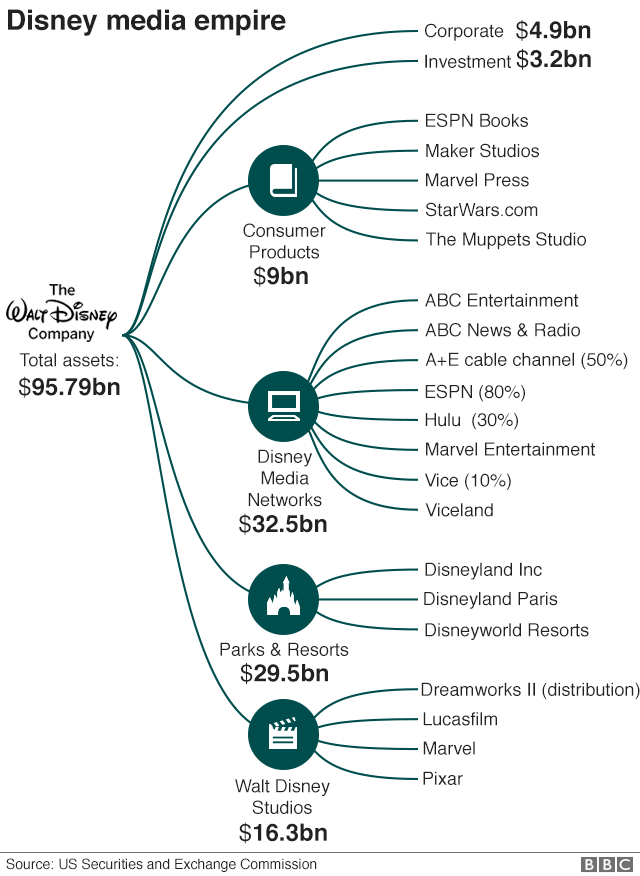
Disney already owns a vast array of news, film and leisure companies in the US, including the likes of ABC News and Radio, Vice, ESPN, Marvel, Lucasfilm and Pixar.
Although it doesn't yet have big interests in the UK, the deal would extend the company's global reach, adding media company Star India and Fox's interests in Sky plc and Tata Sky to its portfolio.
Why was Mr Murdoch keen on the takeover?
When the Fox bid for Sky was announced in December 2016, Rupert Murdoch was willing to spend £11.7bn on the deal for Fox to acquire the shares in Sky it did not already own.
If the Sky-Fox deal goes ahead, 21st Century Fox would gain access to Sky's 22 million customers in Europe. As well as the UK and Ireland, Sky owns similar satellite pay-TV operations in Germany and Italy.
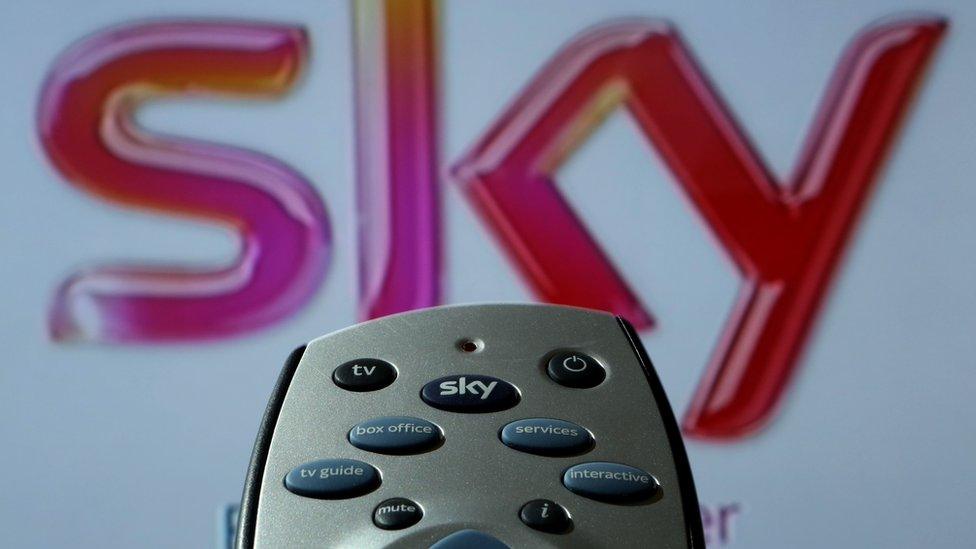
It would also have full control over how it is run, rather than having to listen to independent shareholders.
However, if the Disney-Fox deal does finally go through, which would almost certainly be after the Sky-Fox deal, the whole of Sky would be likely to transfer to Disney's ownership.
Did Murdoch try to buy Sky once before?
Rupert Murdoch's News Corporation tried to buy BSkyB in 2011, but the deal fell apart after revelations about the hacking of murdered schoolgirl Milly Dowler's phone by the Murdoch-owned News of the World.
Then, as now, there was opposition from Labour and the Liberal Democrats as well as other media groups., external
After this, Mr Murdoch split the broadcasting and film empire - Fox - away from his newspaper interests - News Corp.
What happens now?
The CMA's ruling is only provisional, so this tale still has a long time to run.
The process now moves to a three-week public consultation where the CMA will receive responses to its provisional ruling.
After that, it will incorporate the responses into a final report, which will be sent to new Culture Secretary Matt Hancock by 1 May.
He then has 30 working days to make the final decision as to whether or not the deal will go ahead.
Related topics
- Published23 January 2018
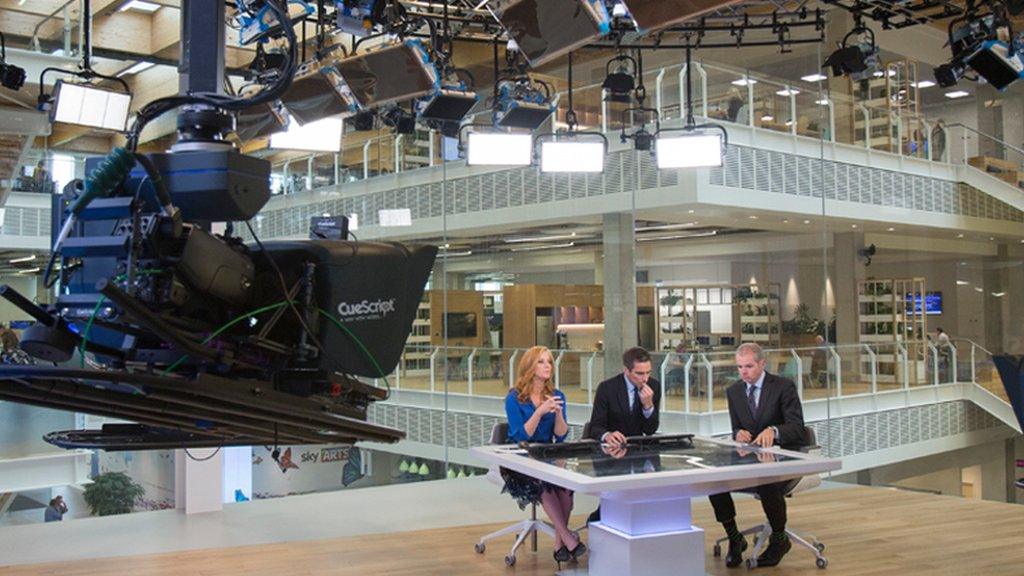
- Published8 May 2017
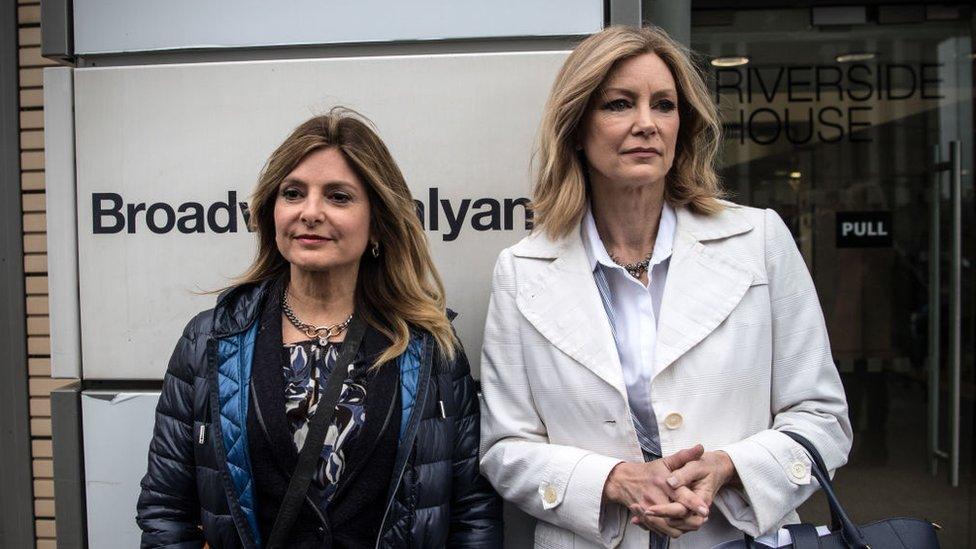
- Published2 May 2017
- Published20 April 2017
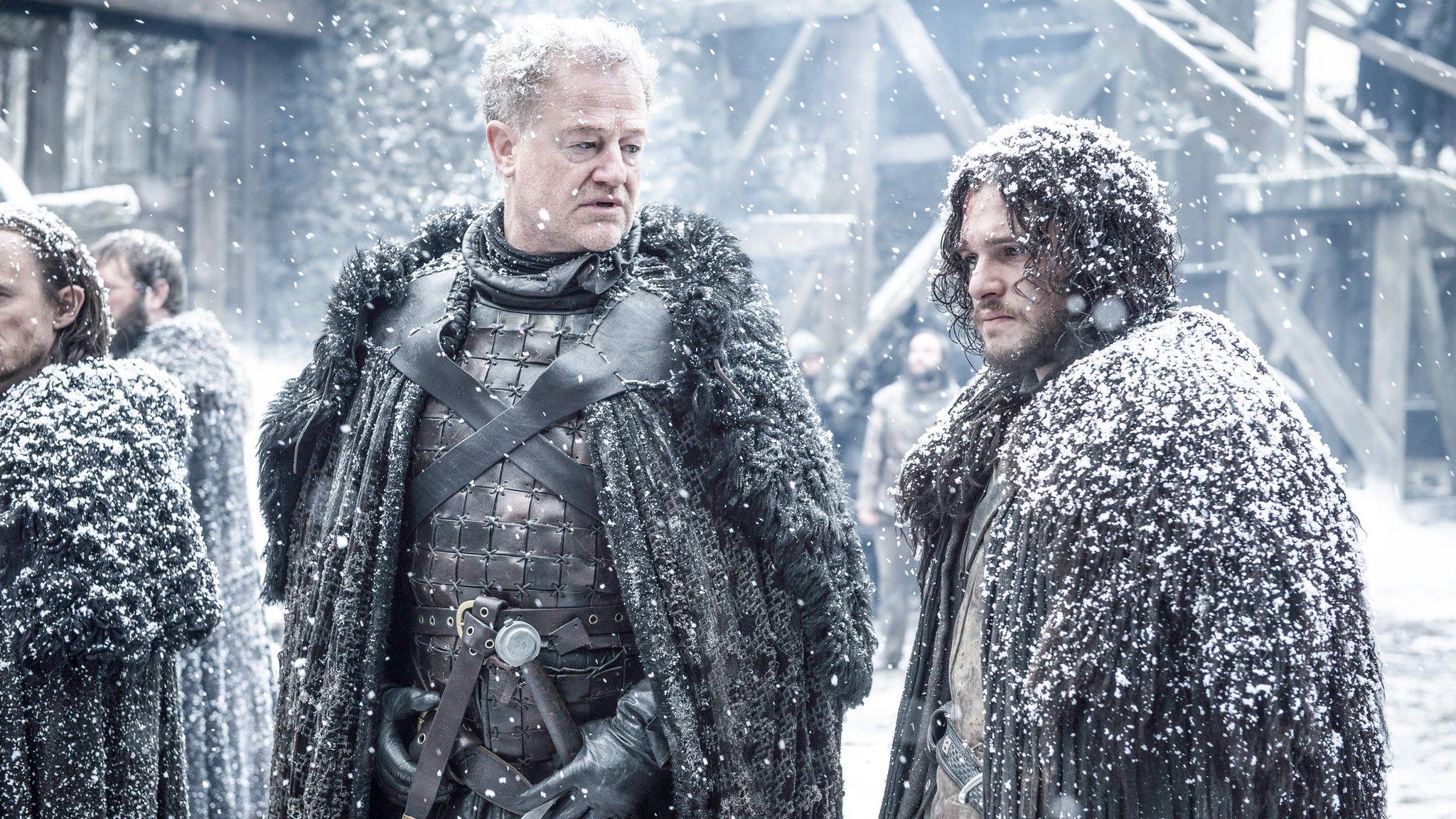
- Published7 April 2017
